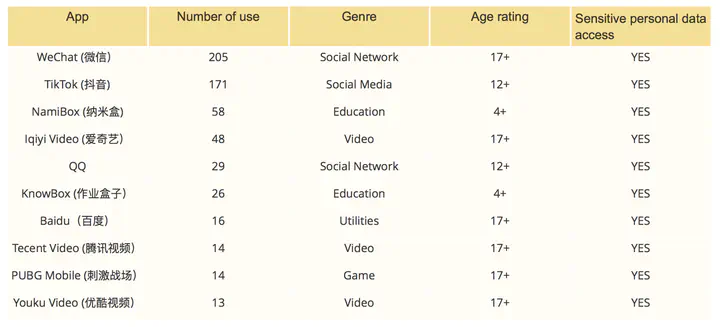What concerns do Chinese parents have about their children's digital adoption and how to better support them?

Abstract
Digital devices are widely used by children, and children nowadays are spending more time online than with other media sources, such as watching television or playing offline video games. In the UK, 44% of children aged five to ten have been provided with their own tablets, with this percentage increasing annually, while in the US, ownership of tablets by children in this age group grew fivefold between 2011 and 2013. Our previous research found that UK children and parents need better support in dealing with online privacy risks. Interestingly, very few research was done on Chinese children and parents. In this report, we present findings from our online survey of 593 Chinese parents with children aged 6-10 in February and March 2019. Our study particularly focused on understanding Chinese parents' awareness and management of their children’s online privacy risks. The goal of the survey was to examine the current adoption pattern of digital devices by Chinese families with young children, the concerns Chinese parents have about their children’s online activities and the current practices they use for safeguarding their children online. Our findings imply that we need to continue presenting specific guidance to parents in order to support their choice of digital content for their young children. Further, we need to look more deeply into the roles schools are taking in children’s online activities, how can we support schools and teachers when they are making recommendations to parents and children.